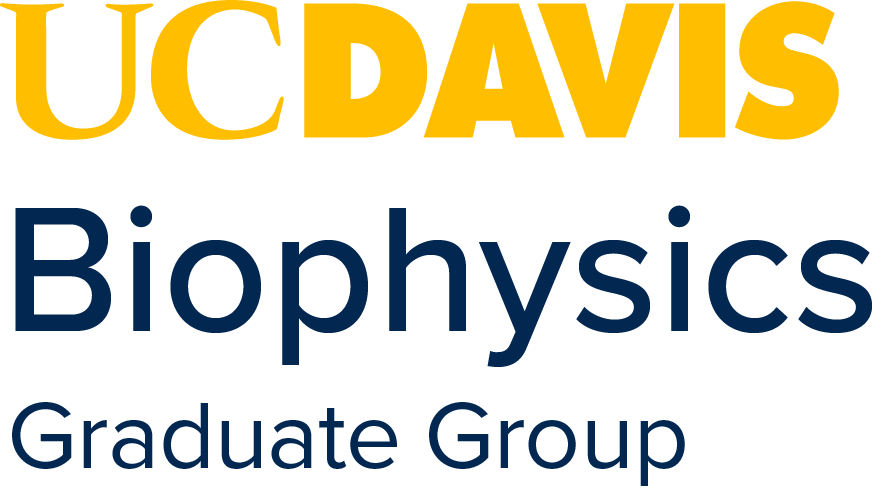Master of Science
The Biophysics Graduate Group does not offer admission to students seeking a M.S. degree.
Doctorate of Philosophy
Specific Fields of Emphasis
The program offers a doctoral degree (Ph.D.) in Biophysics. Students choose one of three areas of specialization: Molecular and Cellular Biophysics, Structural Biophysics, and Computational Biophysics.
Time to Degree
It is expected that students should complete their thesis research and all degree requirements within 5 years from the time of entrance into the program.
Coursework
- Students will first make up deficiencies in the list of prerequisite courses required for admission to the program.
- The program assumes that students have one of three general backgrounds: physics, chemistry or biological science. Students will be expected to complete the complementary part of their education as outlined in the course requirements. The completion of these courses will normally take from one to two years, depending on the student's ability.
- The student and graduate academic advisor will develop a course list in the fall quarter of the first year, which will be then submitted to the Committee on Educational Policy (CEP) for approval. The committee will consider any subsequent change in the course list, submitted by the academic advisor. The advisor and the CEP Committee shall evaluate the yearly performance of the student.
Choosing a Major Professor (PI)
By the conclusion of the fourth 5-week laboratory rotation, each student is expected to select a major professor (also known as a PI), normally (but not necessarily) from the faculty who supervised their rotations. Occasionally, a student may be asked to give a second choice. The student will begin research in his/her PI's laboratory during the first week of the following quarter; the PI is responsible for ensuring the student is fully funded and receives tuition and fee remission.
Mentoring Guidelines
Mentoring by faculty of graduate students is an integral part of the graduate student experience.
TA Requirement
Students are required to TA one graduate advisor-approved undergraduate course in the biological or physical sciences. It is expected that students fulfill this requirement by the second quarter of the second year; it must be fulfilled prior to the qualifying examination.
Qualifying Examination
A qualifying examination will be given during or before the seventh quarter (i.e., fall quarter of a student's third year) in residence according to the regulations of the Office of Graduate Studies.
The procedure will ensure the constitution of an appropriate QE committee to examine fairly the candidate's breadth and depth of knowledge in biophysical principles, especially in the area of research specialization. All members of the Biophysics Graduate Group will participate as members of QE committees. The procedure can be found here.
Dissertation
After passing the qualifying exam and being advanced to candidacy, the student must complete a Ph.D. dissertation. As a guiding principle, this should be composed of a body of work approximately equivalent to three research papers.
The Biophysics Graduate Group does not require a specific number of scientific publications for graduation.
Exit Seminar
All students must present a Ph.D. dissertation research seminar before they file the dissertation with Graduate Studies. This exit seminar is not a dissertation defense.
